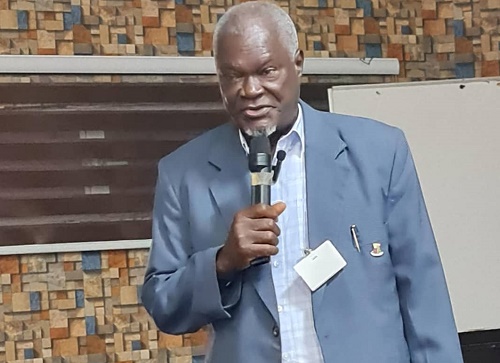By Oluwakayode Banjo Oyo State Government says it is set to punish individuals who defecate in the open and indiscriminately dump refuse. It said this is part of efforts to help reduce significantly or completely eradicate cases of open defecation in the state. The Commissioner for Information Continue Reading
As the world marks “Toilet Day” on Saturday, open defecation remains a challenge to the social and health development in Nigeria. Open Defecation according to the World Health Organization “is the practice of defecating in fields, forests, bushes, bodies of water and other spaces.” Health officials have over time described the practice as a risk Continue Reading
One hundred and twenty four persons have been prosecuted and sentenced to community service for open defecation contravening the state’s environmental and health laws by the Ogun State government. The offenders were arrested in various locations across the state with eighty-two of them from Mowe-Ibafo axis in Obafemi-Owode local government area. The Special Continue Reading
The Federal Government has charged house owners to ensure availability of toilets in the bid to end open defecation in the country. The Minister of Water Resources, Mr Suleiman Adamu gave the charge in Akure while declaring open a one day capacity building seminar for members of Chief Orientation and Mobilisation Officers, COMOS, of the […]Continue Reading
A group of missionaries recently stayed two days at a village in the heart of Ibadan, the Oyo State capital The major purpose of their visitation was evangelism. Whether they succeeded in winning souls or not is not the issue here. The issue is what they found out in that village, which is open defecation. […]Continue Reading
The Federal government says it will not relent in its aggressive fight against open defecation most especially at the grassroots. The Minister of water resources, Mallam Sulieman Adamu made this known in Ado Ekiti during a day sensitization on open defecation free, organized for community mobilization officers of the National Orientation Agency. Our correspondent Busuyi Continue Reading
Ogun State Government is to construct five hundred public toilets across the state to combat the challenges of open defecation. Commissioner for Environment, Mr Abiodun Abudu-Balogun who made this known in Abeokuta while speaking on the ministry’s road map, hinted that the toilets would be constructed through a public-private partnership arrangement. He said the Continue Reading
